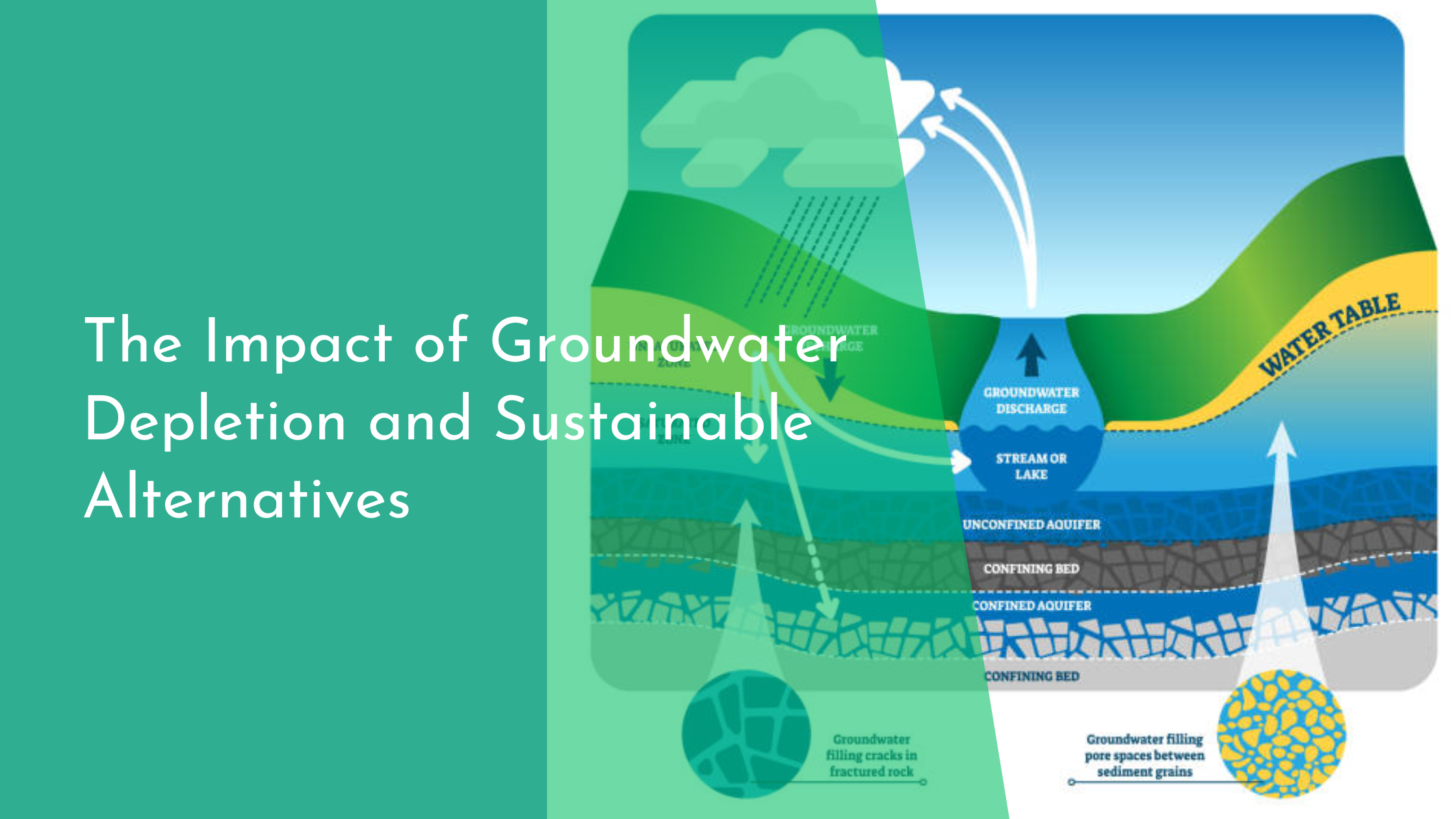The Impact of Groundwater Depletion and Sustainable Alternatives
Groundwater is a critical resource that supports ecosystems, agriculture, and human consumption worldwide. However, its depletion has become a growing concern as water tables continue to fall. Understanding the causes of groundwater depletion, its consequences, and sustainable management solutions is essential for securing a healthy future for our planet. This article delves into the reasons behind groundwater depletion, its impacts, and explores sustainable alternatives that can lead us toward a water-secure future.
Understanding Groundwater Depletion Causes
¸Groundwater depletion occurs when the rate of water extraction surpasses the natural replenishment rate of aquifers. One significant contributor to this imbalance is the over-extraction of water for agricultural purposes. As the global population grows, the demand for food increases, leading to intensified irrigation practices. In many regions, farmers rely heavily on groundwater to sustain their crops, especially in arid and semi-arid areas where surface water is scarce. This continuous withdrawal without adequate recharge causes a steady decline in water tables.
Urbanization and industrialization also contribute substantially to groundwater depletion. Expanding cities require vast amounts of water for residential use, industrial processes, and the maintenance of recreational spaces. Furthermore, impermeable surfaces like roads and buildings hinder the natural infiltration of rainwater into the ground, reducing the amount of water that can recharge aquifers. This combination of increased demand and reduced replenishment poses a significant threat to the sustainability of groundwater resources.
Consequences of Diminishing Water Tables
The decrease in groundwater levels has far-reaching consequences for both nature and human societies. One of the most immediate impacts is the reduction of available freshwater resources, which can lead to water scarcity. As aquifers dry up, communities that depend on them for drinking water face severe shortages. This scarcity can exacerbate existing socio-economic disparities and even lead to conflicts over water rights.
Environmental consequences of groundwater depletion are equally alarming. Declining water tables can result in land subsidence, where the ground sinks due to the loss of supporting aquifer pressure. This can cause structural damage to buildings and infrastructure, posing significant risks to safety and economic stability. Additionally, reduced groundwater levels can harm ecosystems, as rivers, lakes, and wetlands that rely on groundwater for base flow can dry up, leading to loss of biodiversity and deteriorating habitats.
Exploring Sustainable Water Management Solutions
To combat groundwater depletion, sustainable water management practices need to be implemented. One promising solution is the adoption of more efficient irrigation techniques, such as drip irrigation or sprinkler systems, which minimize water waste. These methods deliver water directly to plant roots, reducing evaporation and runoff. Additionally, rainwater harvesting can be a game-changer, collecting and storing rainwater for agricultural and domestic use, thereby reducing the dependence on groundwater.
Another crucial aspect of sustainable water management is the promotion of water conservation through education and policy. Encouraging water-saving habits among individuals and industries can significantly reduce overall consumption. Governments and organizations can play a vital role by introducing regulations that limit excessive water extraction and incentivize the use of recycled water. Investing in modern technologies, such as desalination and water recycling, can also provide alternative sources of freshwater, easing the pressure on groundwater reserves.
Paving the Path to a Water-Secure Future
Building a water-secure future requires collective efforts from governments, industries, and individuals alike. Policymakers need to implement and enforce regulations that protect groundwater resources, such as setting sustainable extraction limits and monitoring usage. Collaboration between stakeholders can facilitate the sharing of best practices and innovative solutions, promoting sustainable water management on a larger scale.
Public awareness and community involvement are equally important in achieving long-term water security. Educating people about the importance of groundwater conservation and the benefits of sustainable water practices can foster a culture of responsibility and stewardship. By embracing technology, sustainable practices, and cooperative strategies, we can pave the path to a future where groundwater resources are protected and preserved for generations to come.
The challenges posed by groundwater depletion are significant, but they also present an opportunity to innovate and implement sustainable solutions. By understanding the causes and consequences of groundwater depletion, we can make informed decisions and take action to safeguard this vital resource. With a combination of technological advancements, policy changes, and public awareness, a water-secure future is not just a possibility but a reachable goal. Together, we can ensure that our groundwater resources remain available and sustainable for the well-being of our planet and its inhabitants.

